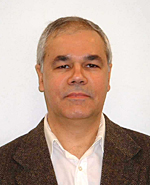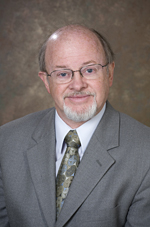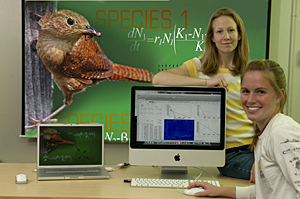



ADVERTISEMENT
- Rozovsky wins prestigious NSF Early Career Award
- UD students meet alumni, experience 'closing bell' at NYSE
- Newark Police seek assistance in identifying suspects in robbery
- Rivlin says bipartisan budget action, stronger budget rules key to reversing debt
- Stink bugs shouldn't pose problem until late summer
- Gao to honor Placido Domingo in Washington performance
- Adopt-A-Highway project keeps Lewes road clean
- WVUD's Radiothon fundraiser runs April 1-10
- W.D. Snodgrass Symposium to honor Pulitzer winner
- New guide helps cancer patients manage symptoms
- UD in the News, March 25, 2011
- For the Record, March 25, 2011
- Public opinion expert discusses world views of U.S. in Global Agenda series
- Congressional delegation, dean laud Center for Community Research and Service program
- Center for Political Communication sets symposium on politics, entertainment
- Students work to raise funds, awareness of domestic violence
- Equestrian team wins regional championship in Western riding
- Markell, Harker stress importance of agriculture to Delaware's economy
- Carol A. Ammon MBA Case Competition winners announced
- Prof presents blood-clotting studies at Gordon Research Conference
- Sexual Assault Awareness Month events, programs announced
- Stay connected with Sea Grant, CEOE e-newsletter
- A message to UD regarding the tragedy in Japan
- More News >>
- March 31-May 14: REP stages Neil Simon's 'The Good Doctor'
- April 2: Newark plans annual 'wine and dine'
- April 5: Expert perspective on U.S. health care
- April 5: Comedian Ace Guillen to visit Scrounge
- April 6, May 4: School of Nursing sponsors research lecture series
- April 6-May 4: Confucius Institute presents Chinese Film Series on Wednesdays
- April 6: IPCC's Pachauri to discuss sustainable development in DENIN Dialogue Series
- April 7: 'WVUDstock' radiothon concert announced
- April 8: English Language Institute presents 'Arts in Translation'
- April 9: Green and Healthy Living Expo planned at The Bob
- April 9: Center for Political Communication to host Onion editor
- April 10: Alumni Easter Egg-stravaganza planned
- April 11: CDS session to focus on visual assistive technologies
- April 12: T.J. Stiles to speak at UDLA annual dinner
- April 15, 16: Annual UD push lawnmower tune-up scheduled
- April 15, 16: Master Players series presents iMusic 4, China Magpie
- April 15, 16: Delaware Symphony, UD chorus to perform Mahler work
- April 18: Former NFL Coach Bill Cowher featured in UD Speaks
- April 21-24: Sesame Street Live brings Elmo and friends to The Bob
- April 30: Save the date for Ag Day 2011 at UD
- April 30: Symposium to consider 'Frontiers at the Chemistry-Biology Interface'
- April 30-May 1: Relay for Life set at Delaware Field House
- May 4: Delaware Membrane Protein Symposium announced
- May 5: Northwestern University's Leon Keer to deliver Kerr lecture
- May 7: Women's volleyball team to host second annual Spring Fling
- Through May 3: SPPA announces speakers for 10th annual lecture series
- Through May 4: Global Agenda sees U.S. through others' eyes; World Bank president to speak
- Through May 4: 'Research on Race, Ethnicity, Culture' topic of series
- Through May 9: Black American Studies announces lecture series
- Through May 11: 'Challenges in Jewish Culture' lecture series announced
- Through May 11: Area Studies research featured in speaker series
- Through June 5: 'Andy Warhol: Behind the Camera' on view in Old College Gallery
- Through July 15: 'Bodyscapes' on view at Mechanical Hall Gallery
- More What's Happening >>
- UD calendar >>
- Middle States evaluation team on campus April 5
- Phipps named HR Liaison of the Quarter
- Senior wins iPad for participating in assessment study
- April 19: Procurement Services schedules information sessions
- UD Bookstore announces spring break hours
- HealthyU Wellness Program encourages employees to 'Step into Spring'
- April 8-29: Faculty roundtable series considers student engagement
- GRE is changing; learn more at April 15 info session
- April 30: UD Evening with Blue Rocks set for employees
- Morris Library to be open 24/7 during final exams
- More Campus FYI >>
2:04 p.m., May 21, 2010----The University of Delaware is one of 50 research universities nationwide to receive a grant from the Howard Hughes Medical Institute (HHMI) for innovative programs to strengthen undergraduate and precollege science education. The four-year, $1.2 million grant, which begins Sept. 1, is the fifth HHMI award that UD has received.
Through its four previous grants the University has initiated and sustained nationally recognized undergraduate science education programs in research, quantitative biology and minority access to science. The new HHMI award seeks to improve these programs and embark on new interdisciplinary initiatives.
The goals of these initiatives are to promote connections between mathematics and the life sciences in two ways: by improving the quantitative skills of students interested in the life sciences; and by expanding and improving on UD's nationally recognized undergraduate degree program in quantitative biology.
HHMI, which announced the awards on Thursday, May 20, said it invited 197 research universities to apply for grants and received applications from 165 of those institutions. The institute awarded a total of $70 million to 50 of the applicants, in 30 states and the District of Columbia, with each grant ranging from $800,000 to $2 million.
“By selecting these 50 grantees, we highlight areas and approaches that we think are particularly powerful,” said David Asai, director of HHMI's precollege and undergraduate programs. “We hope that universities across the country -- even those that are not HHMI grantees -- will turn to these programs when they think about improving science education.”
Delaware's emphasis on quantitative biology includes a new major in the interdisciplinary field, which is housed in the Department of Mathematical Sciences. Students take the same required courses as other biology majors but add a heavy load of math courses, some of them specifically designed to include problems and examples with a life-sciences focus.
Profs. Tobin Driscoll, John A. Pelesko, Louis Rossi and Gilberto Schleiniger from the Department of Mathematical Sciences and Prasad Dhurjati from the Department of Chemical Engineering were instrumental in the design of the curriculum and new courses for the Bachelor of Science in Quantitative Biology. They also have been teaching courses for the program, helping biology faculty include more math in biology courses and both advising students in the major and mentoring them in undergraduate research.
“The fact that the Department of Mathematical Sciences has a strong tradition of research in applied mathematics and of collaboration across disciplines played an important role in facilitating the creation of the Quantitative Biology major, housed in Mathematical Sciences,” Schleiniger said. For example, he noted that a bachelor's degree in math and economics was started many years ago in collaboration with the Department of Economics.
“Mathematical modeling is absolutely essential in systems biology, to explain such things as the transmission of a disease and how a disease -- from swine flu to cancer -- operates in a population,” said David Usher, professor of biological sciences at UD, one of the founders of the quantitative biology program and assistant director of the University's HHMI undergraduate science education program.
“Because mathematicians speak one language and biologists speak another, communication between the two can be a major problem” in research that requires expertise in both disciplines, Usher said. “By training someone in quantitative biology, now you have someone who speaks both languages.”
Hal White, professor of chemistry and biochemistry and UD's HHMI program director, said the institute's support enabled the University to create a section of a required calculus course that is especially relevant to what students are learning in their biology classes. That initiative, combined with integrating more math into biology classes, will help future biologists become more comfortable with math and understand its growing importance to their field.
The idea for the University's quantitative biology program began with a 2002 report from the National Research Council, BIO 2010: Transforming Undergraduate Education for Future Research Biologists, which cited a need for biologists to have stronger math skills. The report also noted that students with an interest in and talent for math often overlook biology as a field of study in favor of a science with more emphasis on math.
“I think if biology students become more aware of how mathematics is used in biology and graduate with a sense that they're not afraid of mathematics, that would be a great success,” White said. “Similarly, we hope to integrate aspects of biology and chemistry in a way that will interest life science majors. It is convenient that these initiatives coincide with the new undergraduate teaching laboratories planned in the Interdisciplinary Science and Engineering Laboratory soon to be constructed.
“Through these initiatives, we strive to stimulate attitudes of inquiry in our students so that they go beyond the facts and seek understanding in the classroom and in the laboratory. Our long experience with active learning pedagogies such as problem-based learning and peer-led team learning in undergraduate science courses provides the means for stimulating attitudes of inquiry.”
The new HHMI grant follows previous major awards from the institute to strengthen and enrich science education at UD -- a four-year, $1.5 million grant in 2006; $1.7 million in 2002; $1.6 million in 1998; and a $1 million award in 1992.
Over the years of HHMI funding, the program has enhanced UD's undergraduate research program, enabled the operation of the nationally recognized Network of Undergraduate Collaborative Learning Experiences for Underrepresented Scholars (NUCLEUS) and promoted active-learning programs in the sciences.
Article by Ann Manser


